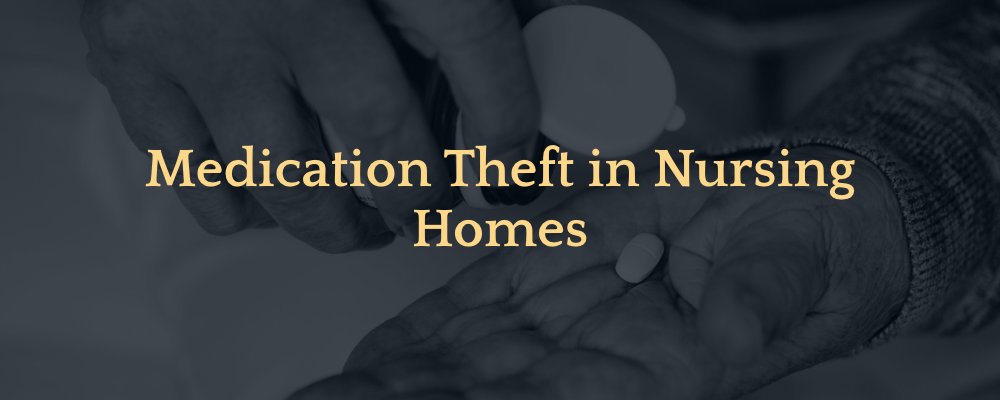
No recovery no fee
Opioid addiction is at record levels in the United States and globally. Because of the very high demand for opioid medications, nursing home residents are now among the top targets for medication theft. Elderly residents not only take many medications, but due to declining health and unfavorable prognoses, they may be more frequently prescribed opioid painkillers to relieve their pain compared to younger patients. The potential for dependence isn’t a strongly relevant factor at the end stages of life.
Prescription painkillers relieve the aches and pains of failing health that would otherwise reduce the quality of life for ailing elderly patients. When someone steals an elderly resident’s medication, they not only commit theft but also an egregious form of elder abuse.

Sadly, nursing homes are one of the top locations for medication theft and it’s likely that only a small percentage of the thefts are discovered. One study in Minnesota showed that an average nursing home resident missed 45 medication doses during the course of 5 years, but only about a quarter of those thefts were caught on camera. By far the most commonly stolen medications are prescription painkillers.
Medication thieves often steal through “medication diversion” by the very staff that’s supposed to care for them. The elderly are easy targets for these thefts due to the following factors:
Oxycodone and other morphine-derivative pain medications are widely available in nursing homes and hospice units and they are by far the most abused prescription drugs. Nursing home staff members may commit medication theft in order to keep the addictive medications for themselves or to sell them to others for profit.
When a patient is left in pain because a caregiver pockets their medication instead of administering it, it’s a form of elder abuse. Further, in many instances caregivers simply pocket all of a patient’s medications when the opportunity arises and then sort through them later, meaning the patient may miss doses of life-saving medications as well as pain meds. In other instances, end-of-life care patients may have formed physical dependence on painkillers and stolen doses could cause them to experience withdrawal symptoms that could be dangerous or deadly due to their fragile health conditions
Family members with loved ones in nursing homes, assisted-living facilities, and hospice care centers should remain vigilant and remember the following:
Nursing home medication theft is a form of elder abuse. Depending on the circumstances of the case, loved ones may be able to pursue litigation in the following ways:
If you suspect your elderly family member has experienced medication theft, it’s important to pursue legal action to protect your loved one and hold those who abuse the elderly accountable for their actions. A Phoenix nursing home abuse attorney can help navigate your legal case.
The personal injury attorneys in Phoenix, Arizona, at Knapp & Roberts have the compassion and trial lawyer skills to tell your story to a jury. We will get to know you and your family so that we can help the jury understand what has happened to you and your family and how it has changed your lives. Obtain the compensation necessary for the injuries and losses you have suffered.